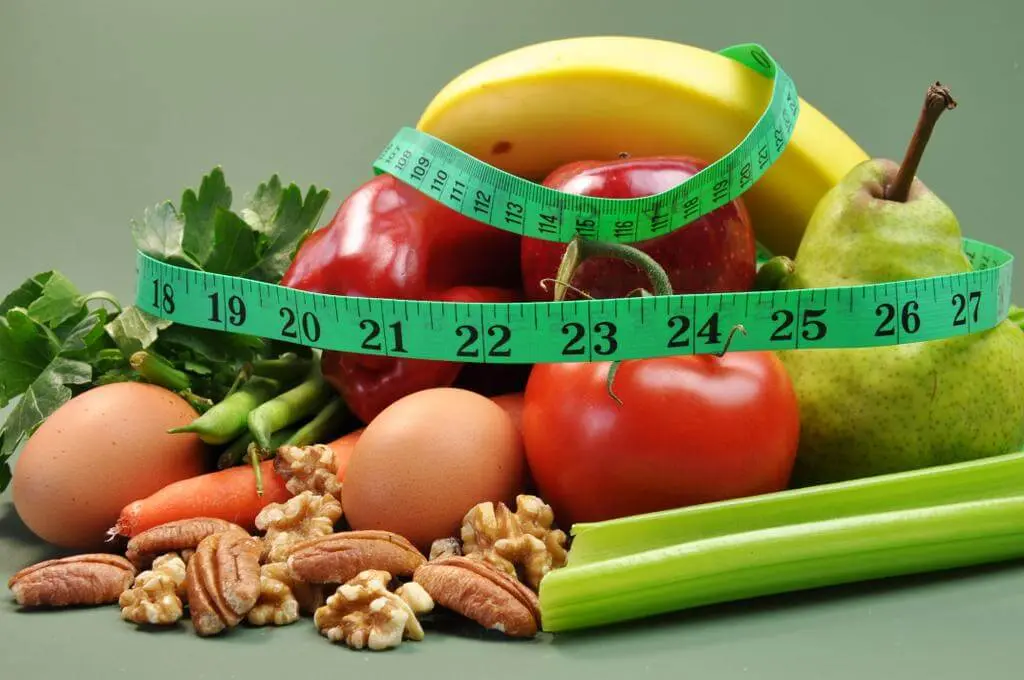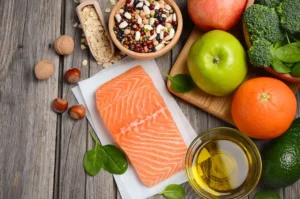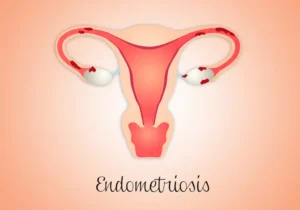Understanding Rapid Weight Loss
Rapid weight loss can be an enticing goal for many individuals, especially those with ambitious weight loss goals. However, it is crucial to approach it with caution and prioritize health above all else. Understanding the concept of rapid weight loss involves recognizing the potential risks and understanding the underlying factors that contribute to its success or failure.
The Rapid Weight Loss Journey
The weight loss journey can be divided into two main phases: the initial drop in weight and the subsequent weight plateau. During the initial phase, individuals may experience rapid weight loss, primarily due to the loss of water weight and glycogen stores. While this may be encouraging, it is important to note that the rate of weight loss tends to slow down as the body adjusts to the new calorie intake and physical activity levels.
Weight Plateaus
Weight plateaus are common during weight loss and can be frustrating for many individuals. These plateaus occur due to various factors, such as metabolic adaptation, decreased muscle mass, and hormonal changes. The body has a remarkable ability to adapt to changes, including adjusting its metabolic rate to conserve energy. This can lead to a temporary halt in weight loss progress.
While rapid weight loss may seem desirable, it is essential to set realistic goals and avoid excessive and unsustainable weight loss. Rapid weight loss exceeding 5% of a person’s weight over 6-12 months can be a cause for concern. Unintentional weight loss may be a sign of underlying medical conditions such as thyroid problems, gastrointestinal disorders, or hormonal imbalances. It is crucial to consult a healthcare professional if significant and unexplained weight loss occurs.
The Science Behind Weight Loss
Weight loss occurs when the body’s energy expenditure exceeds its energy intake. This basic principle can be summed up in the equation of weight loss: calorie deficit. By creating a calorie deficit, the body is forced to utilize stored fat for energy, resulting in weight loss.
When we consume fewer calories than our body needs to maintain its current weight, it must find an alternative source of energy. The body turns to stored fat, breaking it down into fatty acids to be used as fuel. This process is known as lipolysis.

It Varys From Person to Person
However, the rate of weight loss can vary from person to person. Factors such as starting weight, metabolism, gender, age, and activity level all play a role. Generally, those with a higher starting weight may experience more significant weight loss initially, as they have more stored fat to mobilize.
Metabolism a Key Factor
Metabolism also plays a crucial role in weight loss. Some individuals naturally have a faster metabolism, which means they burn calories more efficiently. Age and gender can also influence metabolism, with younger individuals and men typically having higher metabolic rates.
Activity Level Another Key Factor
Activity level is another factor that affects weight loss. Regular exercise increases energy expenditure, helping to create a calorie deficit. This can further accelerate the rate of weight loss.
While creating a calorie deficit is necessary for weight loss, it’s important to do so in a healthy and sustainable manner. Extreme calorie restrictions or crash diets can lead to muscle loss, nutritional deficiencies, and a slower metabolism. It’s best to aim for a gradual and steady weight loss, typically 1-2 pounds per week, to ensure the preservation of muscle mass and long-term weight maintenance.
Factors That Affect Weight Loss
As we’ve discussed, various factors affect how quickly weight is lost during a weight loss journey. These include starting weight, metabolism, age, gender, and activity level. All of these factors determine the amount of weight that can realistically be lost in a week.
Those with a higher starting weight may experience more significant initial weight loss, as they have more stored fat to mobilize. Metabolism also plays a crucial role, with individuals who have a faster metabolism burning calories more efficiently. Age and gender can also influence metabolism, with younger individuals and men typically having higher metabolic rates.
Additionally, activity level and regular exercise increase energy expenditure, helping to create a calorie deficit and potentially accelerating weight loss. However, it’s important to focus on gradual and sustainable weight loss.
Diet
When it comes to weight loss, a healthy diet plays a crucial role. Consuming a balanced and nutritious diet can help you shed those extra pounds effectively. To achieve sustainable weight loss, it is important to focus on consuming lean proteins, such as skinless poultry, fish, legumes, and tofu. These proteins keep you satiated and maintain muscle mass.
Including a variety of vegetables and fruits in your diet is also essential. These are low in calories but high in essential nutrients, vitamins, and minerals. Whole grains, like brown rice, quinoa, and oats, provide fiber, which aids in digestion and keeps you fuller for longer.
Determining your caloric needs is vital to create a meal plan that suits your weight loss goals. Calculating how many calories your body needs and creating a calorie deficit can lead to healthy weight loss. It is important to consult a healthcare professional to determine your specific caloric needs based on factors like age, gender, weight, and level of physical activity.
* Hey there, do you want to transform the health of your community with the earth’s most powerful plants? Ora Organic creates supplements from the earth’s most powerful plants to transform your health. From protein to vitamins to probiotics, they do it all! Want to find out more? Click the link below:
https://oraorganic.pxf.io/AWRmyK
As an Impact Affiliate, I receive a small commission at no cost to you, if you proceed to make a purchase.

Exercise
Exercise is a crucial component of a weight loss journey, as it plays a significant role in burning calories and promoting overall health. Both cardiovascular exercise and resistance training are important for achieving weight loss goals.
Amount of Exercise
According to the American Heart Association (AHA) and the National Health Service (NHS), adults should aim for at least 150 minutes of moderate intensity aerobic exercise or 75 minutes of vigorous intensity aerobic exercise per week. This can be spread out over several days to accommodate different schedules and preferences.
Cardio Examples
Examples of moderate intensity aerobic exercises include brisk walking, cycling at a moderate pace, swimming, and dancing. These activities get your heart rate up and improve cardiovascular fitness. On the other hand, vigorous intensity aerobic exercises include running, cycling at a fast pace, high-impact aerobics, and playing sports like basketball or soccer. These activities require more effort and help burn calories at a faster rate.
Resistance Training
In addition to cardiovascular exercise, resistance training is essential for preserving muscle mass and preventing muscle loss during weight loss. Resistance training can involve using weights, resistance bands, or bodyweight exercises like push-ups, squats, and lunges. It not only helps with weight loss but also improves strength, stability, and overall body composition.

Adequate Sleep
Getting enough quality sleep is an essential part of any weight loss journey. When your body does not get the required rest, it is less likely to be able to maintain energy levels and take on regular physical activity. Adults need 7-9 hours of sleep per night, according to the National Sleep Foundation. Poor sleep can also lead to increased hunger and cravings, which can make it harder to stick to your diet.
Staying Hydrated
Staying hydrated is an important part of any weight loss journey. Water helps to keep your body functioning optimally and can aid in digestion, absorption, and elimination of food. It is recommended that adults should drink around 8-10 glasses of water per day. Drinking plenty of water can also help to reduce hunger pangs and cravings that can lead to overeating.
Tracking Progress and Making Adjustments
Tracking progress and making adjustments are crucial aspects of any weight loss journey, especially during a rapid weight loss challenge. Here are some effective strategies to help you stay on track:
1. Firstly, regular weigh-ins can provide valuable insights into your progress. It’s important to note that weight can fluctuate due to factors like water retention, so don’t get discouraged by minor day-to-day changes. Instead, focus on the overall trend over time.
2. Taking body measurements is also essential to track changes in body composition. Measure your waist, hips, arms, and thighs and monitor these measurements regularly. Sometimes, even if the scale doesn’t show much change, your measurements can reveal significant progress.
3. Using fitness assessments is another great way to measure your progression. Check your cardiovascular fitness, strength, and flexibility regularly to see improvements and adjust your exercise routine accordingly.
4. Keeping a food diary can help you identify areas of improvement in your diet. By documenting your food intake and reviewing it regularly, you can make adjustments to your calorie intake and portion sizes to align with your weight loss goals.
5. Setting attainable goals is crucial for maintaining motivation and focus. Break down your overall weight loss goals into smaller, realistic milestones. Celebrate the achievement of each milestone and make any necessary adjustments to continue progressing.
Remember, weight loss is a journey that requires patience and consistency. By tracking your progress and making necessary adjustments along the way, you can achieve sustainable and successful weight loss.
Warnings
While shedding excess weight is a common goal for many people, it’s important to approach weight loss efforts with caution. Rapid weight loss, defined as losing more than 1-2 pounds per week, can come with potential risks and side effects. It’s crucial to prioritize your health and well-being during any weight loss journey.

Nutritional Deficiencies
One of the risks associated with rapid weight loss is the potential for nutritional deficiencies. Drastically reducing your calorie intake may lead to inadequate nutrient intake, which can negatively impact your overall health. Additionally, rapid weight loss can also result in muscle loss, as your body may break down muscle tissue for energy. This can impact your strength and metabolism in the long run.
Increased Risk of Gallstones
Another concern is the increased risk of gallstones, which can occur when the liver releases more cholesterol into the bile due to rapid weight loss. Gallstones can be painful and require medical intervention to remove.
Metabolic Breakdown
Moreover, rapid weight loss can cause a metabolic slowdown. Your body may adapt to the reduced caloric intake by conserving energy, which can make it harder to continue losing weight in the future.
Individual Differences
Lastly, it’s important to note that individual differences play a significant role in weight loss efforts. Factors such as metabolic rate, body composition, and medical conditions can affect how much weight you can realistically shed in a week.
Considering these potential risks, it’s essential to prioritize safe and sustainable weight loss. Consult with a healthcare professional or registered dietitian to develop a comprehensive and personalized plan that takes into account your individual needs and goals.
Reader Success Stories
Many individuals have successfully embarked on a weight loss journey and achieved remarkable results. These success stories provide valuable insights into the strategies that worked for them, their impressive weight loss results, and whether they were able to maintain their newfound weight.
One reader, Sarah, focused on incorporating regular exercise into her routine. She embraced a combination of aerobic exercises and strength training, which helped her shed an impressive 10 pounds in a month. Sarah also paid attention to her portion sizes and opted for nutrient-dense foods like lean proteins and leafy greens. She continues to maintain her weight loss by leading an active lifestyle and making mindful choices about her food intake.

Another reader, Mark, found success by practicing intermittent fasting. By limiting his eating window to 8 hours a day and fasting for the remaining 16 hours, he was able to lose 8 pounds in just two weeks. Although challenging in the beginning, Mark gradually adjusted to this eating pattern and was able to maintain his weight loss. He emphasized the importance of listening to his body’s hunger cues and being flexible with his fasting schedule when necessary.
These success stories offer valuable lessons. First, incorporating regular physical activity into your routine can have a significant impact on weight loss. Finding activities you enjoy and being consistent is key.
Second, focusing on portion control and choosing nutrient-dense foods can support weight loss efforts.
Finally, finding a sustainable eating pattern, whether through intermittent fasting or another approach, can lead to successful weight loss and maintenance.
By learning from these success stories, individuals can gather inspiration and insights to tailor their own weight loss journey, leading to realistic and achievable goals for long-term weight management.





